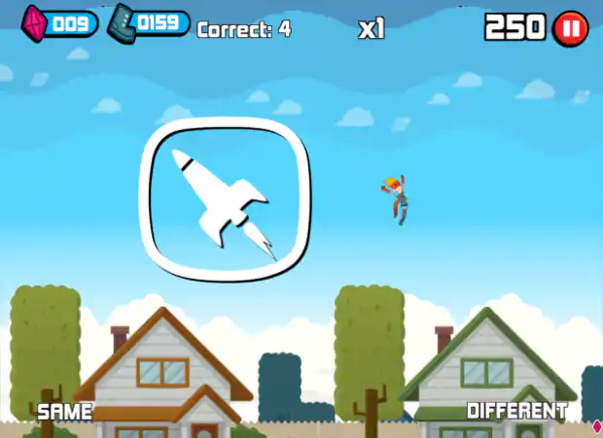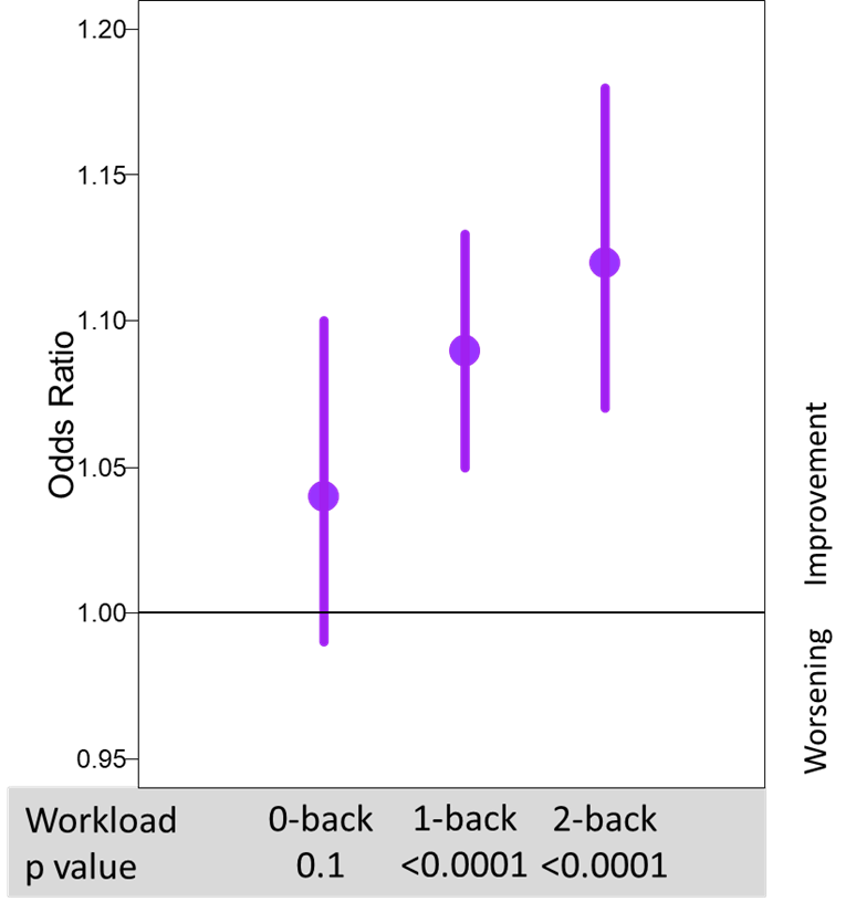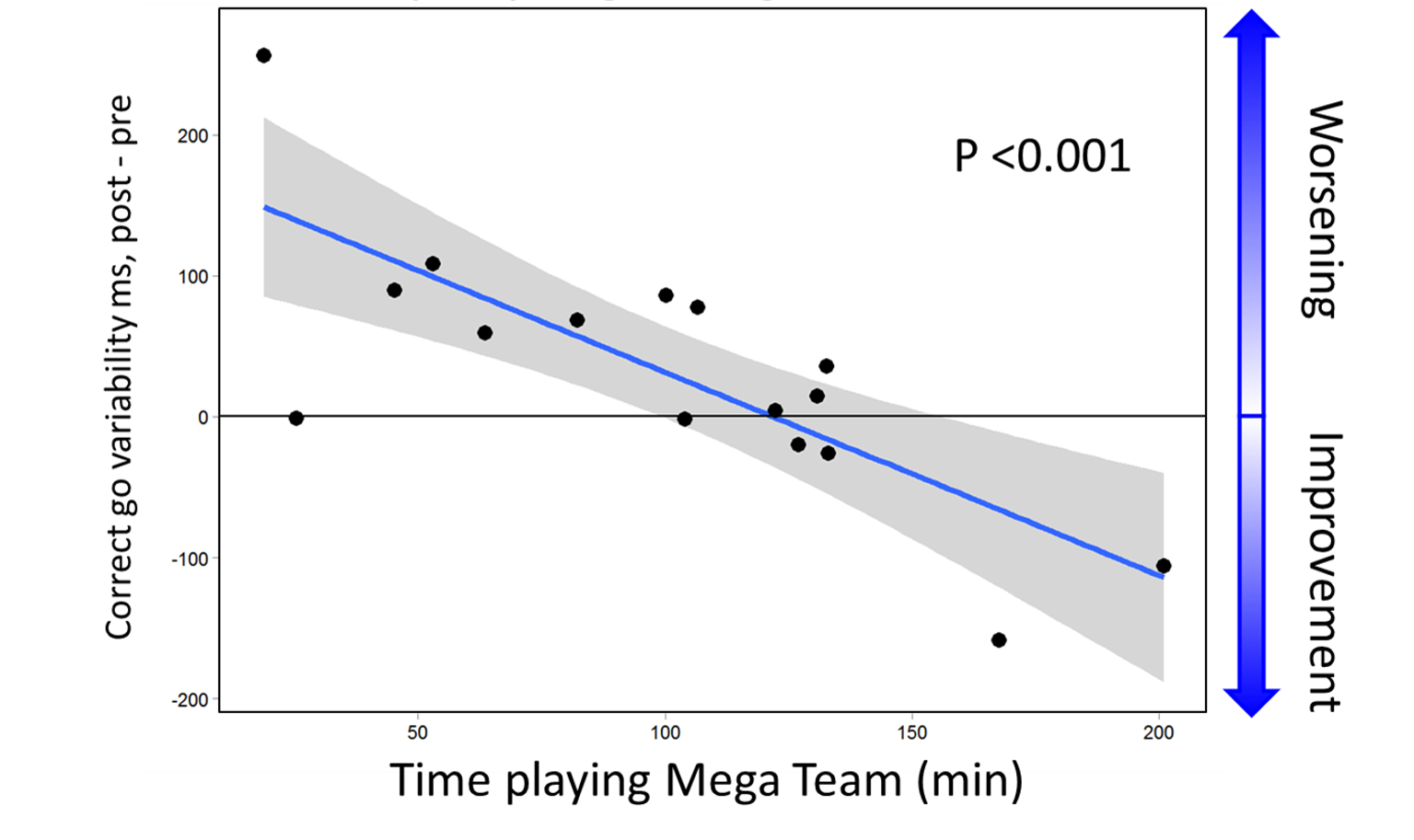|
BACKGROUND
Attention Deficit Hyperactivity Disorder (ADHD) is a childhood onset clinical disorder of inattention, hyperactivity, and impulsivity (DSM-V). Behavioural hyperactivity in children with ADHD generally decreases with age, however, attentional, and inhibitory problems frequently continue into adulthood. Approximately 6.4 million American children are currently diagnosed with ADHD.
Children with disorders that impact neurodevelopment (e.g., ADHD, autism) often have difficulties with executive functions and regulating emotions. Cognitive-based video game training has been shown to improve outcomes, however, this training has been expensive, has required professional supervision, and has been investigated only within a narrow group of children. A new study at The Hospital for Sick Children is validating the effects of a highly-engaging, take-home video-game-based intervention, designed to improve executive functioning in children with various brain-based developmental disorders.
DESCRIPTION OF THE INVENTION
Drs. Jennifer Crosbie and Russell Schachar (The Hospital for Sick Children) have created a video-game-based assessment and rehabilitation software. The program was designed with input from youth and family advisors to increase acceptability.
This video game functions as a cognitive rehabilitation intervention, incorporating features backed by research as important, and decreasing the need for intensive professional involvement. It is designed to increase the likelihood of beneficial outcomes such as training of multiple executive function processes, in a motivating and entertaining format for users. Early pilot work and feedback was used to enhance patient engagement with the games. The applications involve the embedding of cognitive assessment and rehabilitation tasks within a captivating video game environment. It trains cognitive control and working memory for ADHD patients and other neurodevelopmental disorders with executive function deficits.
The current study being performed is a randomized control trial (RCT) to test the near and far transfer effects of this video game as an intervention tool.
COMMERCIAL APPLICATIONS & ADVANTAGES
Digital Therapeutics are evidence-based, therapeutic interventions for patients, that are driven by high quality software programs to prevent, manage, or treat a medical disorder or disease. The global digital therapeutics market size was valued at USD 4.2 billion in 2021.
DEVELOPMENT STAGE
Clinical trial details: The RCT has recently been completed using a functional prototype of this video game. The trial has recruited ADHD (n=168) and autistic participants (n=62), ages 6–12 years old, who were randomized into either of the following: 1) Five weeks of training using the video game software, involving several executive function games (e.g., response inhibition and work memory); or 2) treatment as usual (TAU). Initial results show significantly improved working memory accuracy (OR = 1.12, 95% CI 1.07–1.18,p < 0.001) on a spatial n-back task (Figure 2), and decreased response variability (slope = 0.7, 95% CI 0.1–1.3, p = 0.02) as a function of game play time and difficulty levels (Figure 3); more time play improved performance at harder levels of tasks. Full RCT results will be available at the time of presentation.
The video game prototype will require commercial level rebuild before commercialization.
|
 Figure 1. Visual representation of video game.
Figure 1. Visual representation of video game.
 Figure 2. Working memory Improvement associated with a 10-minute increase in game play.
Figure 2. Working memory Improvement associated with a 10-minute increase in game play.
 Figure 3. Response variability (ms) by time playing video game.
Figure 3. Response variability (ms) by time playing video game.
|